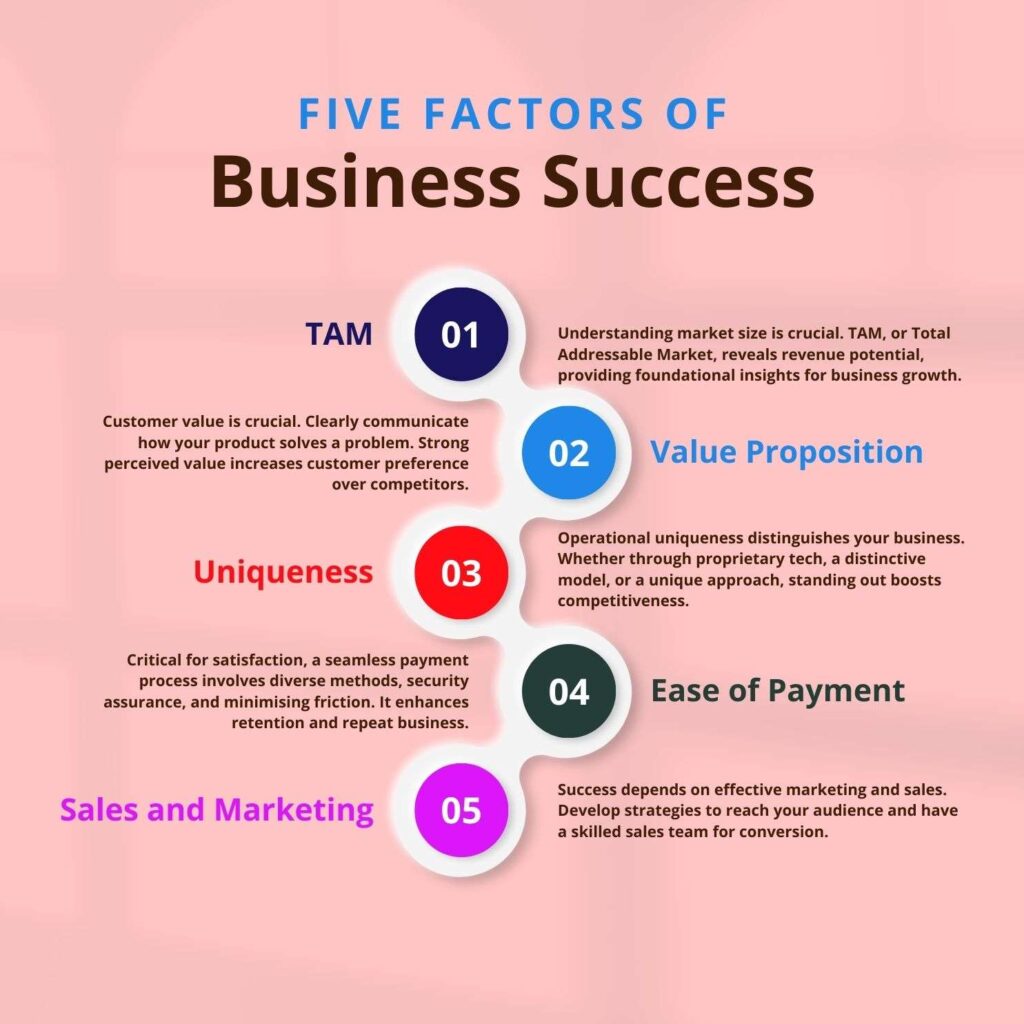Why would I say starting a business is a terrible idea?
Don’t you own two businesses?
Yes. But hear me out.
Owning a business is hard work, stressful, and not the easy path to wealth – although it may be the quickest.
Just to note that certainly one of the best books on this subject is The Millionaire Fastlane by M J DeMarco, where he talks about the process of setting up a business and selling it:
In this blog, I will go through some of the worse aspects of business ownership. I’m hoping, however, that you realise that this is not a cynical take on business ownership.
I think that anyone looking into owning a business can actually learn from these painpoints.
The Easy Bit – Having a Business Idea
Setting up a company is really easy to do.
You do not even need to start by setting up a website, company on Companies House etc. You can test your concept initially at the kitchen table or from your study.
I would say that the biggest initial problem people have at this stage is attempting to start a business by investing their personal savings into the business at too early a phase.
I have always found this to be my issue, as I can get excited by an idea, and then string myself along without thinking about the viability of the business.
The best way to avoid your vision being clouded by excitement is to take a day or two, just to allow the excitement to die down. Then, when you think about your new idea, reflect on whether your views have changed.
The Difficulty of Thinking Impassionately
The first problem with starting a business is that you probably go into it with fierce passion, yet it is often impassionate and rational thinking which allows a business to become profitable.
When I first went into the education industry, it was the smile on a student’s face when they found out something knew that provided me with motivation. As I work on running my businesses, I realise that smiles do not pay the bills. Obviously these smiles are hugely important to me, but I had to also concentrate on making difficult choices to ensure that we stayed in business.
Employees can often focus on some of the fun sides of the business, but as an owner or director, you need to carefully divide your resources: time, human capital, and money.
Thinking in this way does not necessarily come naturally to many people. In fact, most people will fail in business because of this. Unfortunately, a business owner has to accept the fact that passionate thinking is what drives you forward, yet impassionate rational thought is what leads your company to grow.
Sometimes, I reflect on this and think that if I wanted to live my life by adhering closely to my passions, a job as an employee would fulfill this need more directly.
5 Factors of Business Success
A business is a failure if it cannot afford to keep operating. Of course, many large companies use excessive debt and tricks to continue to operate, but they are still, fundamentally, failed businesses.
A business’ ability to make money boils down to five key components (in my experience).
I’ve named these five components the five factors of business success:
- Total Addressable Market (TAM): Understanding the size and potential of the market your business operates in is crucial. The TAM represents the total revenue opportunity available for a particular product or service in a specific market. It provides a foundational understanding of your business’s potential growth.
- Value Proposition: The value your business offers to customers is paramount. Clearly defining and effectively communicating how your product or service solves a problem or fulfills a need is essential. The stronger the perceived value, the more likely customers are to choose your business over competitors.
- Operational Uniqueness: Uniqueness in operations can set your business apart. This could involve a proprietary technology, a distinctive business model, or a unique approach to delivering products or services. Having something that makes your business stand out contributes to its competitive advantage.
- Ease of Payment: A seamless and convenient payment process is critical for customer satisfaction. This includes offering various payment methods, ensuring security, and minimising friction in the purchasing process. A smooth payment experience can positively impact customer retention and encourage repeat business.
- Effective Marketing and Sales: Even with a great product or service, success hinges on your ability to market and sell it. Developing effective marketing strategies to reach your target audience and having a skilled sales team to convert leads into customers are essential components. Marketing builds awareness, while sales convert that awareness into revenue.
The difficult fact about creating any business is that all five need to be working in sync.

Discussion
Now it will be the case that at least one of these aspects can be improved. In fact, all businesses need to improve at least one of these components. For instance, even Apple, probably the best run company in the world, can still open up new channels to sales and increase their TAM.
In its early stages, businesses will often have many aspects of their business that are not operating smoothly. In fact, the majority of businesses will not make a profit in their first year. Not making a profit, or enough money is a reason why it is often really crucial that anyone starting a business attempts it as a side-hustle first, rather than as the source of their main income.
TAM (Total Addressable Market)
TAM is definitely the most important aspect to starting any business. You need to have consumers.
There are three TAM profiles which create the need for a business:
- A small market, but motivated consumer
- A huge market, but unmotivated consumer
- A huge market, but motivated consumer
You’ll notice that many of the biggest companies in the world address the 3rd TAM profile. As businesses are usually started by individuals who feel passionately about something, you may think that there are people seeking your services as motivated as you. However, this is not always the case.
Value Proposition
What can you actually offer the consumer? Have you some expertise or skills that can help someone else? If you had to name a price for your goods or services, what would it be?
Your business has to solve a problem. If it doesn’t, what’s the point?
Operational Uniqueness
I think that a fundamental part of building your brand, is thinking about the USP (Unique Selling Proposition). What makes your business different from others that are out there already? This is where understanding your competition is important, as if you can establish where you business fits into the market, you can convince consumers to take advantage of your offering.
If you compete with other businesses on exactly the same services, eventually you can expect that you may have to drive down your prices to stand a chance of gaining customers. Sometimes this strategy can work if you’re able to corner your market, but it usually helps to carve out a unique niche.
A book that I would recommend which addresses this very topic is The Blue Ocean Strategy by W. Chan Kim:
Ease of Payment
It is all very well having a product or service, but you also need to ensure that it is as easy as possible for customers to pay for them.
Nowadays, it is very easy take transactions electronically or otherwise, but there are some ways which are better than others. I’d say that the ultimate way for any business to ensure smooth cashflow is with the subscription and direct debit model.
Monthly payments allow businesses to budget, form projections, plan out their spending and investment, and make bookkeeping and accounting much easier (which brings down fees).
Honestly, these days, ease of payment is probably the simplest aspect of setting up a business, but does require a little research initially as you should always work out the fee structure of a point-of-service system such as Square or iZettle, and other direct debit services such as GoCardless. In our business we actually use GoCardless to great effect to manage our direct debits.
If you are interested in stress free payments, use our referral link, and we’ll each get £100 once you’ve signed up and collected £500 in payments.
Effective Marketing and Sales
Marketing and sales are often the most challenging aspects of running a business. I won’t go into every aspect of marketing and sales here as it could be a whole blog post on its own, but here are some of the reasons why:
- Dynamic landscapes
- High competition
- Intangibility of services
- Complex customer behavior
- Difficulty in measuring ROI
- The need to balance creativity and analytics
- Building trust
- Adapting to evolving technology.
Basically, you need to grow continually in this area of your business, so that you’re able to catch new waves in marketing, and also recruit a sales team which can deliver. You also need to be able to sell yourself and your business to hire the right people to take your business forward.
Conclusion
In conclusion, while the allure of entrepreneurship may be enticing, the journey of owning a business is undoubtedly riddled with challenges. From the initial thrill of a business idea to the complexities of thinking impassionately and the crucial financial aspects, each step demands careful consideration.
As an entrepreneur who owns two businesses, I can attest to the demanding nature of this path. The interconnected components of Total Addressable Market, Value Proposition, Operational Uniqueness, Ease of Payment, and Effective Marketing and Sales require a delicate balance for sustained success.
While I’ve highlighted the hardships, it’s essential to understand that this perspective is not a cynical take on business ownership. Instead, it serves as a guide for potential entrepreneurs, urging them to navigate the pitfalls with awareness and strategic thinking.
Starting a business is a formidable undertaking, and it’s vital to approach it with a clear understanding of the challenges and a commitment to continuous improvement. By embracing the complexities, aspiring business owners can transform obstacles into opportunities and pave their way to entrepreneurial success.
If you enjoyed this blog, join my mailing list for other posts like this one:



I’ve been following this amazing website for the past few days, it serves up great content for viewers. The site owner works hard to engage visitors. I’m a big fan and hope they keep up the good work!